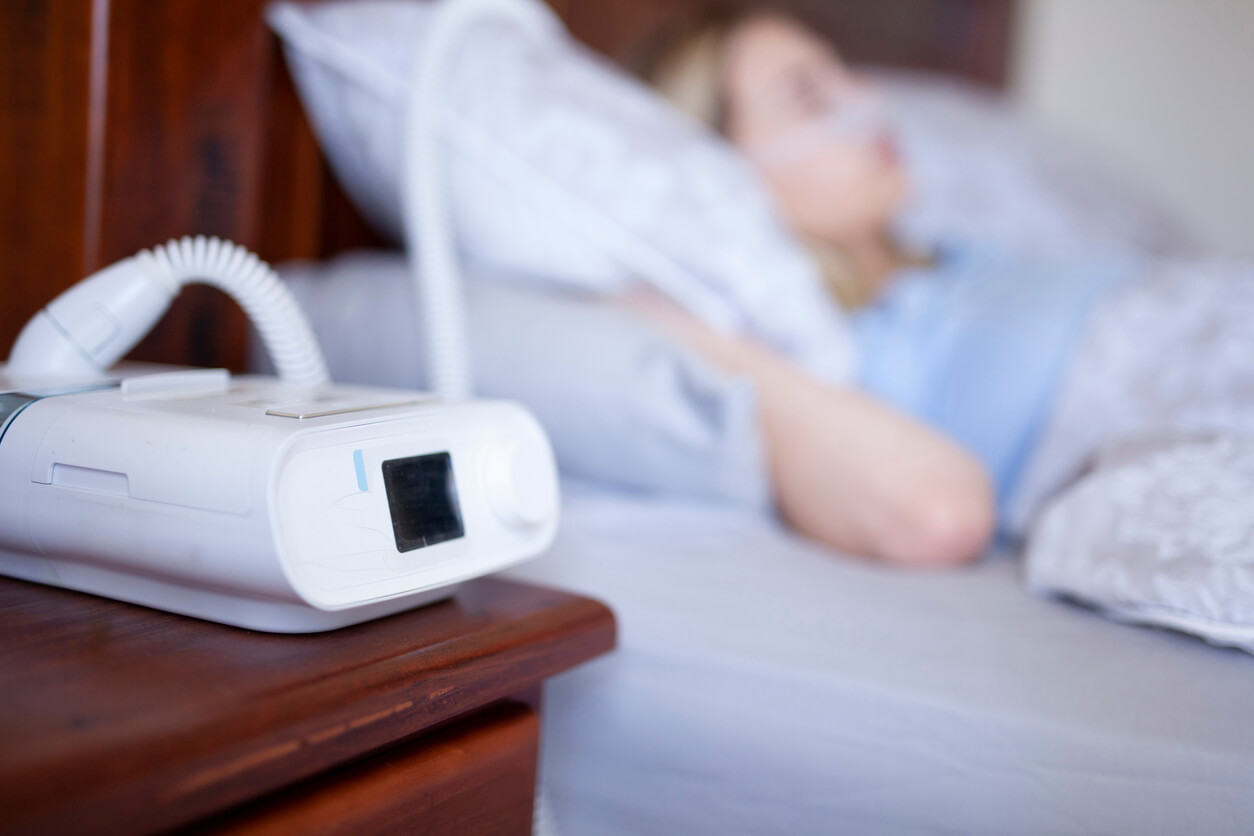Philips Recalls BiPAP, CPAP and Ventilator Devices Due to Carcinogenic, Other Risks
Editors carefully fact-check all Drugwatch content for accuracy and quality.
Drugwatch has a stringent fact-checking process. It starts with our strict sourcing guidelines.
We only gather information from credible sources. This includes peer-reviewed medical journals, reputable media outlets, government reports, court records and interviews with qualified experts.

The U.S. Food and Drug Administration announced Philips issued a voluntary CPAP recall for some models of BiPAP, CPAP and ventilator devices last month because of potential health risks, some of which can be serious or life threatening.
Philips’ continuous positive airway pressure (CPAP), Bilevel positive airway pressure (BiPAP) and continuous ventilator devices provide breathing assistance to patients with sleep apnea and other breathing problems.
In the FDA’s Safety Communication, the agency said, “The polyester-based polyurethane (PE-PUR) sound abatement foam, which is used to reduce sound and vibration in these affected devices, may break down and potentially enter the device’s air pathway.”
Patients can inhale or ingest particles and chemicals released from broken down foam and potentially suffer from increased cancer risk, respiratory problems and other health issues.
“We deeply regret any concern and inconvenience that patients using the affected devices will experience because of the proactive measures we are announcing today to ensure patient safety,” Frans van Houten, CEO of Royal Philips, said in the company’s original press release on June 14, 2021.
Recalled Philips device brands include:
- Trilogy 100
- Trilogy 200
- Garbin Plus
- Aeris
- LifeVent
- BiPAP V30
- BiPAP A30/A40 Series Device Models
- DreamStation
- Dorma 400 and 500
- SystemOne (Q-Series)
- C-Series ASV
- REMstar SE Auto
- E30
Philips is recalling all devices and all serial numbers manufactured between 2019 and April 26, 2021. For a complete list, refer to Philips’ Urgent Medical Device Recall.
Cancer, Respiratory Issues, Other Health Risks
The FDA has not classified the recall but said the problems with the abatement foam made from polyester-based polyurethane (PE-PUR) could cause serious injuries which can be life threatening and require medical intervention to avoid permanent damage.
Particles and toxic chemical gases from broken down sound abatement foam can cause health problems when inhaled or ingested, including: Carcinogenic effects, toxic effects, chemical exposure risk and respiratory issues.
“To date, Philips Respironics has received several complaints regarding the presence of black debris/particles within the airpath circuit (extending from the device outlet, humidifier, tubing, and mask),” the company said in its Urgent Medical Device Recall letter.
So far, the company has received reports of headache, cough, chest pressure, sinus infection and upper airway irritation. No deaths have been reported.
Potential risks of particulate and chemical exposure include:
- Skin, eye and respiratory tract irritation
- Inflammatory response
- Headache
- Asthma
- Kidney, liver and other organ problems
- Toxic carcinogenic effects
- Nausea/vomiting
- Hypersensitivity
- Dizziness
The FDA recommends that BiPAP and CPAP patients affected by the recall talk to their health care providers about alternative treatments. Patients using ventilators at home shouldn’t stop using or change their ventilator until talking to their health care provider.
Recall Spurs BiPAP, CPAP and Ventilator Lawsuits
After Philips and the FDA announced the BiPAP, CPAP and ventilator recalls, lawyers began accepting cases for people who used these recalled devices and suffered injuries or whose loved ones died.
According to Philips’ April 2021 quarterly report, the company determined that the sound abatement foam “may degrade under certain circumstances, influenced by factors including use of unapproved cleaning methods, such as ozone, and certain environmental conditions involving high humidity and temperature.”
The majority of the problematic products belong to the first-generation DreamStation product family, the company said.
Because there is a potential carcinogen risk, lawyers are accepting cases for all types of cancer, including: Bladder, lung, prostate, stomach, breast cancer and others.
Chemical exposure is also a concern, and people who suffered from liver damage, kidney damage, lung issues and other organ problems are included in potential Philips CPAP lawsuits.